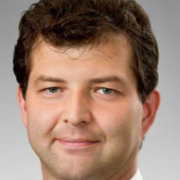We are living in a world of cutting-edge science, which holds the potential to transform the landscape for patients living with common and rare diseases within the next five years. This is of particular importance as we face a demographic evolution that will see an already-aging population expand significantly and rapidly across the globe.
ADVERTISEMENT
Danish diabetes biotech Zealand Pharma has started its initial public offering in the US at Nasdaq Global Select Market. It plans to raise US$75m to fund clinical trails.
In preparation for the development and commercialisation of Autolus’ T-cell products, the London based company announced four new senior leadership appointments.
Following Novo Nordisk, Dr. Stanislav Glezer has joined the French biopharmaceutical company Adocia as the new Chief Medical Officer. He will be responsible for designing and executing the clinical development plan of its diabetes treatments.
Italian pharma company Chiesi Farmaceutici withdraws from a co-development agreement with gene therapy pioneer Uniqure. This will add US$1.5m to Uniqure’s expenses this year.
Since US senators in February conveyed the impression that drug developers might have misused market monopolies related to orphan drugs (ODs) to overprice their compounds, the status has come under closer scrutiny. Neither the US nor Europe currently have consistent approaches for deriving value for OD therapies. Pooling expertise and scattered patient data across borders could help ease both diagnosis and development, providing a foundation for pricing and giving patients much faster access to treatments.





